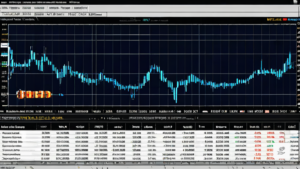Mastering Emotional Intelligence in Trading for Optimal Results

Navigating the Psychology of Trading
Traders enter the market with the dual objectives of maximizing profits and minimizing losses. While these goals appear straightforward, they can heavily impact a trader’s emotional well-being. One prominent psychological phenomenon in trading is the disposition effect, which influences decision-making when it comes to selling assets.
Understanding the Emotional Mechanics
Rooted in behavioral finance, the disposition effect is driven by cognitive biases and emotional reactions. It was first identified by economists Shefrin and Statman in 1985. People tend to react more strongly to losses than gains, leading to irrational choices, especially among inexperienced traders.
Illustrating the Phenomenon
Consider a scenario where individuals are presented with two options: gaining $100 in one scenario or first gaining $200 and then losing $100 in another. Despite the net outcome being the same, the disposition effect often influences individuals to favor the former scenario, showcasing a tendency to hold onto losing positions and sell winning ones.
Implications of the Disposition Effect
Two significant consequences of the disposition effect are reduced portfolio diversification and heightened investment risk. Traders who cling to losing trades may miss out on diversification opportunities and expose themselves to increased risk in their investments.
Strategies to Overcome Emotional Biases
Adopting a Long-Term Approach
One effective strategy to counter the disposition effect is to view trades within the context of a long-term investment strategy rather than isolated transactions. This broader perspective can help traders maintain objectivity and minimize emotional influences on their decision-making.
Utilizing Hedonic Framing
The hedonic framing technique involves mentally reframing losses as a collective entity and profits as a series of small victories. This approach aids in reducing the emotional impact of individual wins and losses, promoting a more balanced perspective.
Establishing a Structured Investment Strategy
Developing a comprehensive investment plan that encompasses risk management, diversification, and asset allocation is crucial. Adhering to this strategy during market fluctuations can prevent impulsive decisions driven by emotions and ensure a disciplined approach to trading.
Guarding Against Overconfidence
Combatting overconfidence is essential in trading. Regular research and seeking professional advice help in maintaining a realistic outlook on market predictions. By promptly closing losing trades and allowing profitable ones to flourish, traders can navigate the market with clarity and confidence.
Conclusion: Embracing Emotional Intelligence in Trading
Mastering emotional intelligence is pivotal for successful trading. Acknowledging and managing emotional biases like the disposition effect can lead to a more rewarding and profitable trading experience. By implementing effective strategies and maintaining discipline, traders can optimize their decision-making and achieve long-term success in the market.




